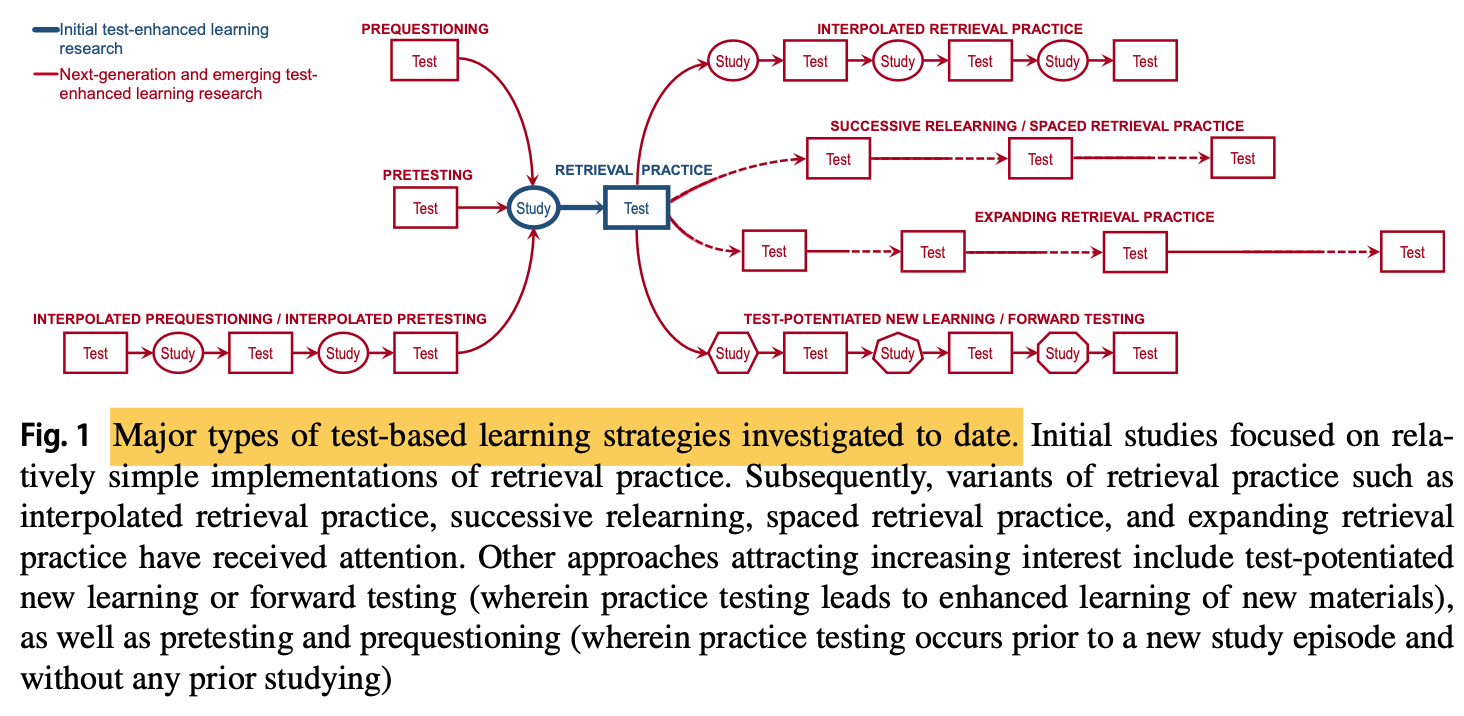Testing is dead! Long live testing!

Many educators, education researchers, and families are kind of sick of testing. However, we need to be careful about what kinds of tests we are talking about here. High-stakes testing (e.g., exams with major implications for a student's academic career or life, such as exams to get into a program or college, exams that make up the majority of a student's grade in a class, etc.) has been criticized quite a bit by both test makers and test takers. But low-to-no-stakes, practice testing has a solid history of being beneficial for learners. Dr. Pooja Agarwal has done a lot of good work to share the benefits of retrieval practice - her website is a great resource. The entire area of scholarship goes by a few names (e.g., practice testing, the testing effect, test-enhanced learning, retrieval practice) and evidence that this kind of testing benefits learning is one of the more robust findings in the science of learning. And now there's a new topical collection (i.e., a group of themed articles, published in multiple issues of the journal) in Educational Psychology Review titled Test-Enhanced Learning and Testing in Education: Contemporary Perspectives and Insights, which reviews and expands this area of scholarship.
The articles in this topical collection are definitely worth checking out, and a good place to start is the guest editors' introduction (Pan et al., 2024). They provide a nice overview of the history of this area of scholarship, including a super helpful graphic that organizes and explains the various flavors of test-enhanced learning ideas:

Also, they present evidence of how test-enhanced learning research has spanned multiple academic domains and shown efficacy in both lab- and classroom-based research. The topical collection includes review, empirical, and commentary articles that range from strict tests of new ideas about retrieval practice all the way to thoughts on how to apply, and advocate for, test-enhanced learning in classrooms. Some highlights include a meta-analysis showing that practice testing is associated with reduced text anxiety (Yang et al., 2023) and a study showing how students self-regulate their learning when practice testing (Badali et al., 2023). Finally, Pan and colleagues highlight some cool future directions for this area of research, including the need for more research on studying practice testing in authentic educational environments and combining practice testing with other learning strategies, such as elaborative and generative learning activities.
All in all, Pan and colleagues' introduction to the topical collection is a great overview of an important area of scholarship, and definitely worth a read.